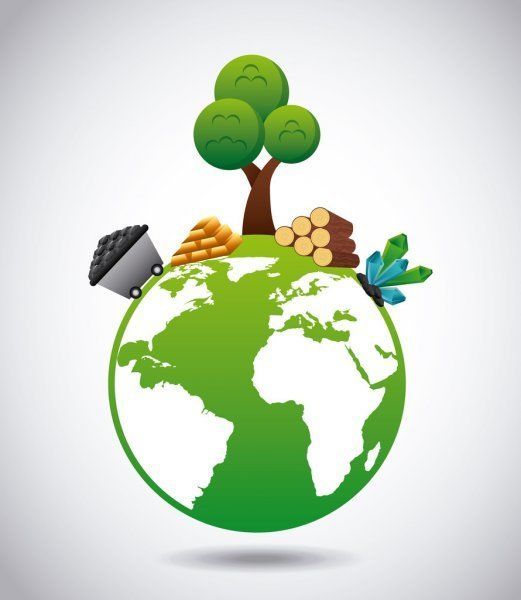
Saturdays with Shavara
How “Natural” is the Depletion of our Natural Resources?
Welcome back to another Saturday with Shavara, and might I add my first post of the new year! My goal as always is to keep these post fresh and cover topics that I come across that just feel like they need to be shared. When I came across the topic of natural resource depletion, and the role that we all play in it I knew just what I wanted to talk about in my first post of 2021. Natural resources are by the technical definition; those that exist without human actions and are either renewable or non-renewable. That’s right green people the resources I’m talking about are the ones we can’t pat ourselves on the back for creating, rather we need to take a long hard look at our impact, because natural resource depletion is growing into a larger global issue that future generations will be left to deal with.
Natural resource depletion begins to occur when resources are consumed faster than they can be replaced, and include our water usage, farming practices, consumption of fossil fuel, and even fishing practices. From taking a very long shower to leaving the lights on in a room you’ve left, you are contributing to the depletion of natural resources. On a larger scale companies that use exorbitant amounts of fossil fuel deplete from a non-renewable resource meaning the resource is not replenishable. Fossil fuel is used to generate electricity for our homes, running our cars, and even for making single use plastic. It is imperative that we slow the depletion of this non-renewable resource by looking to more renewable resources like sunlight in the form of solar power and wind power. Consumers can also slow the depletion of fossil fuels by driving less, carpooling, reducing energy use at home and saying no to single use plastic.
Fishing practices are also an area of concern, and although a renewable resource when sustainable fishing practices are not in place the entire ecosystem can be altered with their absence. Roughly 1/3rd of the worlds fish population is dangerously depleted and as consumers we can help change that statistic by only purchasing sustainably sourced fish from companies that recognize their impact on ecosystems. There is also resource depletion of crops and soil quality, which can be combated by rotating crops and staying away from chemical pesticides. As consumers we may not be responsible for farm practices directly, but indirectly we can improve the rate at which farmers turn over crops by reducing food waste, and shopping locally.
Water usage is another largely overlooked issue, many people believe that because water is a renewable resource that depletion is not a problem; however, studies have shown that close to 1/3rd of the world’s population live in areas experiencing a shortage of freshwater. There are so many uses for water beyond what we use for drinking such as; agricultural, industrial, and environmental purposes. Many industries require the use of water during their manufacturing processes in regard to rinsing or cooling. You may be thinking, “what does water have to do with manufacturing?” well it is even necessary when generating electricity. Water is used when gathering other raw natural resources and of course in agriculture for nourishing livestock and irrigating crops. Water is such an essential part of our lives that treating it as such is key. Saving water by minimizing shower times, utilizing energy efficient appliances, washing only full loads of dishes and clothes and shopping local all tie back to saving more water on an individual level.
Natural resource depletion is going to happen but maintaining the rate at which we are depleting our resources will only cause environmental problems for future generations to deal with. When we take accountability for our role, we can create real change. Those trusty three R’s are here yet again to save the day; Reduce how much you use, Reuse what you have, and Recycle everything you can. Until next time green friends!
KOB’s very own Content Writer,
Shavara J.
References:




